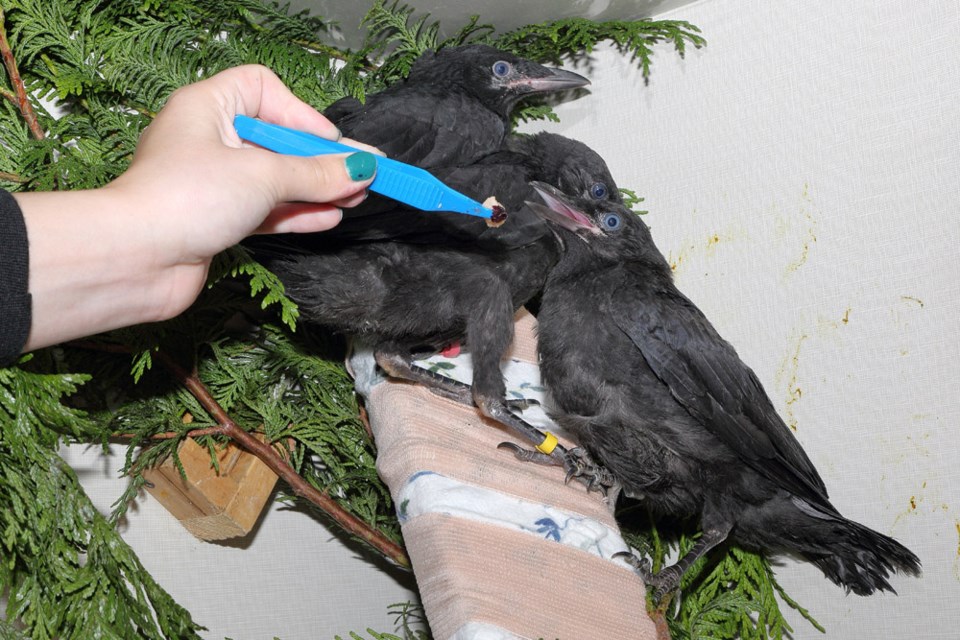Volunteers with the Burnaby-based Wildlife Rescue Association of B.C. have been busy saving baby crows and reunifying them with their parents. Humans who think they are helping are inadvertently kidnapping the fledglings.
Yolanda Brooks, spokesperson for the organization, says baby crows leave the nest and spend seven to 10 days on the ground before they learn to fly. During this vulnerable period, their parents keep watch and continue feeding the fledglings. They also dive bomb anything that may be a threat to their babies.
“People see the crows and think it’s in distress and being attacked by a larger crow,” Brooks explained. When people try to help the baby on the ground, the adults then dive-bomb the human.
“We get a lot of calls of people saying the crows are attacking the baby, and I’m trying to help the baby,” she added.
The Burnaby Lake care centre has taken in 132 crows since May and had 20 in care at press time. Brooks said the association has been reuniting fledglings with their parents by returning them to where they were found and placing the crows in the nearest nest. The volunteers often get dive bombed while placing the crows. The crows will still call out to each other, and the parents will start feeding their young again.
“Birds have no sense of smell, so it’s easier to do that if we can locate the nest,” Brooks said.
Brooks wants people to know they should leave baby crows alone, unless they are bleeding or have some kind of visible wound. Young crows can be identified by their blues eyes but may be close to adult size. Brooks has a tip for people who have to frequently cross hostile crow territory: carry an umbrella to protect yourself from diving parents.

.png;w=120;h=80;mode=crop)

